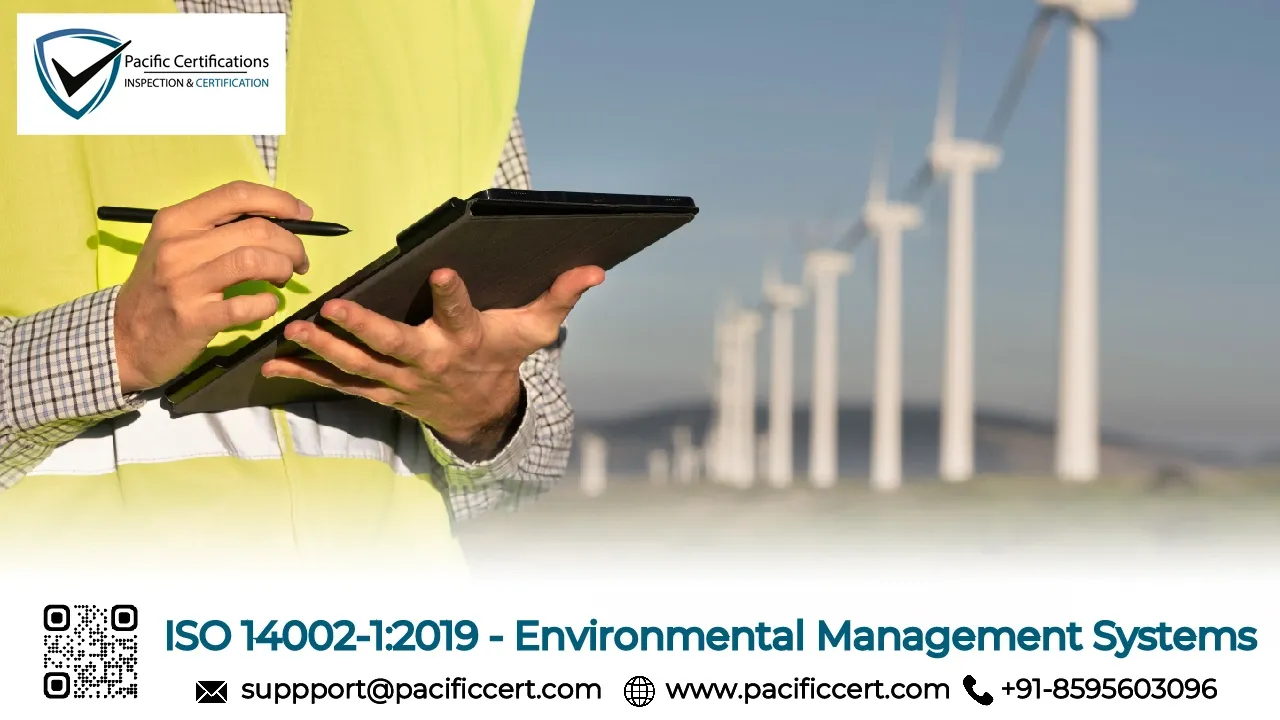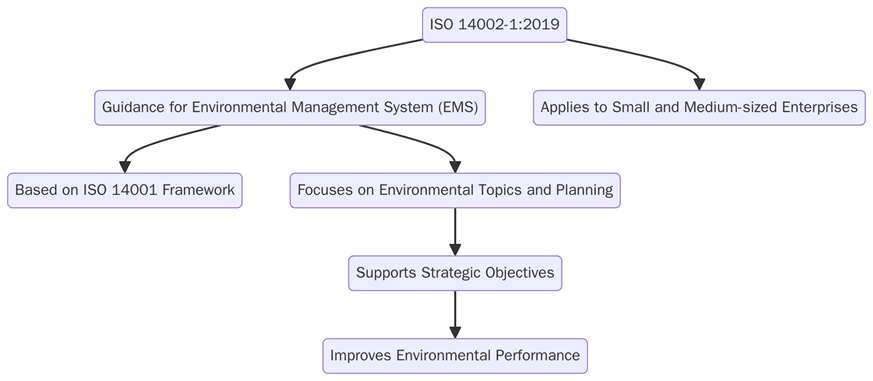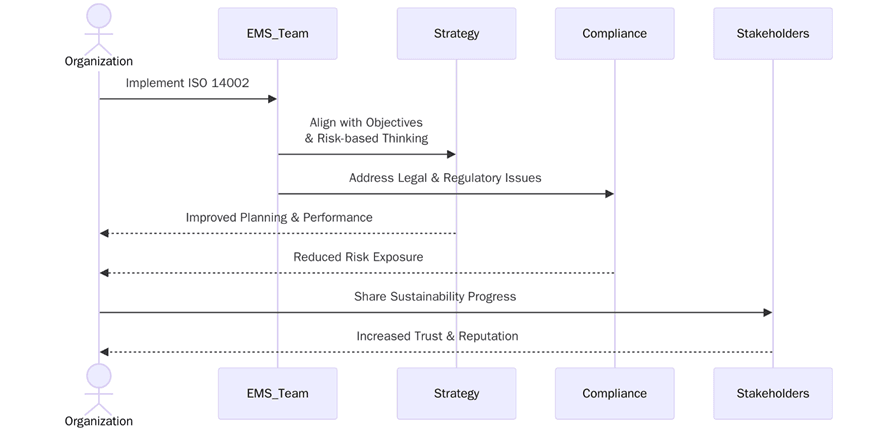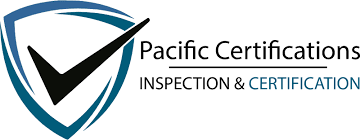ISO 14002-1:2019 Environmental Management Systems Certification for Sustainability

Introduction
ISO 14002-1:2019, "Environmental management systems—Guidelines for using ISO 14001 to address environmental aspects and conditions within an environmental topic area," provides technical guidance to organizations for addressing environmental aspects and conditions related to specific environmental topics. This standard guides the organizations on how to use the well-established ISO 14001 framework to effectively manage and address environmental issues.
If a business wants to improve its environmental performance, ISO 14002 assists in achieving this by providing a tool for integrating environmental considerations into the operation level and for making sure that their operations meet down-to-earth regulations. This blog will present the highlights of ISO 14002-1:2019, its purpose, and the advantages it presents to organizations while looking into the implementation or upgrading of their EMS.
Environmental concerns are increasingly being taken into account in each industry's considerations, with regulations and public expectations calling for companies to take pre-emptive measures to limit any adverse environmental effects. The ISO 14000 family of standards, along with ISO 14001, provides the rudiments for environmental management systems (EMS) that an organization uses to lessen its environmental footprint.
Specifically, ISO 14002 prescribes guidance for organizations in utilizing ISO 14001 for the management of environmental aspects and conditions related to certain specific environmental topic areas. Thus, availing the standard in the areas of waste management, water consumption, pollution control, or climate change, will assist an organization in developing an EMS that actually meets sustainability goals along with regulation.
What is ISO 14002-1:2019?
The ISO 14002 series provides topic-specific guidance and examples for organizations that want to apply their environmental management system to a more focused set of environmental aspects or a combination of specific environmental aspects and environmental conditions.

This document presents generic guidance and establishes a framework for common elements to guide the development of topic-specific parts. The ISO 14002 series supplements the general requirements and guidance in ISO 14001 and ISO 14004 and aims to connect other documents of the ISO 14000 family to ISO 14001. While this document does not address every clause of ISO 14001, the clauses are in the same order and are consistent with a Plan-Do-Check-Act (PDCA) approach.
Entry points to the ISO 14002 series
The entry point for an organization applying one or more parts of the ISO 14002 series involves its decision to establish an environmental management system, and its intention to take action in relation to a particular area of interest or concern for environmental management, for example:
Specific commitment(s) related to protection of the environment, according to its environmental policy;
One or more of its significant environmental aspects or compliance obligations;
Specific risks and opportunities that need to be addressed related to environmental conditions.
An organization that seeks to enhance its focus on such an area of interest or concern can apply ISO 14001 to that end, using the specific guidance in relevant part(s) of the ISO 14002 series.
Key Components of ISO 14002-1:2019
ISO 14002 offers practical guidance on addressing environmental topics within the context of ISO 14001’s framework. Some of the main components and steps included in the standard are:

One of the first steps in managing environmental topics is identifying the environmental aspects and conditions that are significant to the organization’s activities. This includes assessing how the organization’s operations, products, and services interact with the environment.
There must be processes established within the organization to track the requirements placed by the law and ensure their fulfilment. In ISO 14002, it is indicated for organizations to embed legal compliance into the EMS and it gives guidance on how the organization maintains current knowledge of environmental laws that affect its operation.
Once environmental aspects are identified, organizations should set clear objectives and measurable targets. These objectives should align with the broader goals of ISO 14001, which emphasizes continual improvement. ISO 14002 assists organizations in setting environmental management objectives that are specific, measurable, achievable, relevant, and time-bound (SMART).
ISO 14002 emphasizes the importance of assessing the risks associated with environmental aspects. This includes evaluating potential risks to the environment, public health, and safety. The guidelines provide a framework for managing these risks through proactive measures, such as pollution prevention, resource efficiency, and minimizing waste generation.
ISO 14002 emphasizes the concept of continual improvement, a core principle of the ISO 14001 standard. Organizations should regularly evaluate their EMS and environmental management practices, identify areas for improvement, and implement corrective actions to enhance their environmental performance over time.
What are the benefits of ISO 14002?
The ISO 14002 series provides guidance that is targeted toward specific types of interrelated environmental aspects and environmental conditions. The benefits of applying the ISO 14002 series can include:

Enhancing environmental performance within specific environmental topic areas;
Protecting the environment by preventing or mitigating adverse environmental impacts within specific environmental topic areas;
Mitigating the potential adverse effect of environmental conditions on the organization within specific environmental topic areas;
Aligning the environmental management system with the organization’s strategic direction, e.g. to support a specific environmental policy or organizational commitment.
Contact Us
For assistance with implementing ISO 14002 or achieving ISO 14001 certification, Pacific Certifications is here to help. Our team of experts can guide you through the process of addressing specific environmental topics and improving your organization’s environmental performance.
If you need support with ISO certification in Maldives, contact us at [email protected].
Read More at: Blogs by Pacific Certifications

